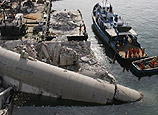
Children are every country's most vital resource. This is true not just morally, but also economically. Investing in the health, education, and skills of children offers the highest economic returns to a country.
A new study by the UN Children's Fund (UNICEF) shows which high-income countries are doing well when it comes to making these investments and which are doing poorly.
The report, Child Well-Being in Rich Countries, takes a holistic view of the conditions of children in the United States, Canada, and Europe ? 29 countries in all. The top-ranked countries, where children are best off, are the social democracies of Western Europe. The Netherlands heads the list, followed by Norway, Iceland, Finland, Sweden, and Germany.
At the bottom one finds a major surprise: the US, the richest large economy in the world, is in 26th place, followed by three much poorer countries: Lithuania, Latvia, and Romania. France and the United Kingdom are ranked in the middle.
Gaps in well-being
The study assesses children's well-being in terms of material conditions (related to household-income levels); health and safety; education; risky behavior (such as excessive alcohol consumption); and physical environment, including housing conditions. Although the study is limited to high-income countries, national governments ? and even cities ? in other parts of the world should replicate it to analyze their own children's well-being.
The gaps between the northern European countries and the US are the most telling.
Northern European countries generally provide cash support to families to ensure that all children are raised in decent conditions, and they undertake ambitious social programs to provide high-quality day care, pre-school, and primary and secondary education. Moreover, all children are well covered by effective health care systems.

















 Wenchuan Earthquake Memorial Museum officially opens to public
Wenchuan Earthquake Memorial Museum officially opens to public


![]()
